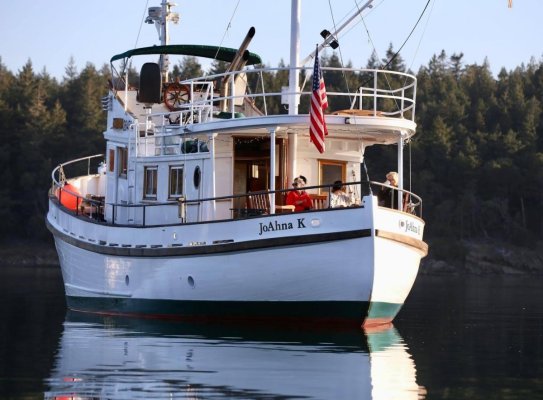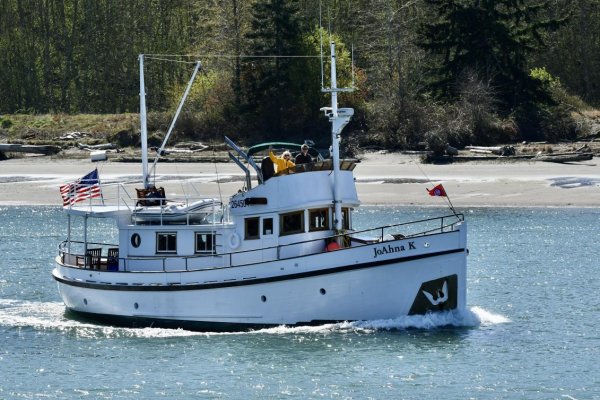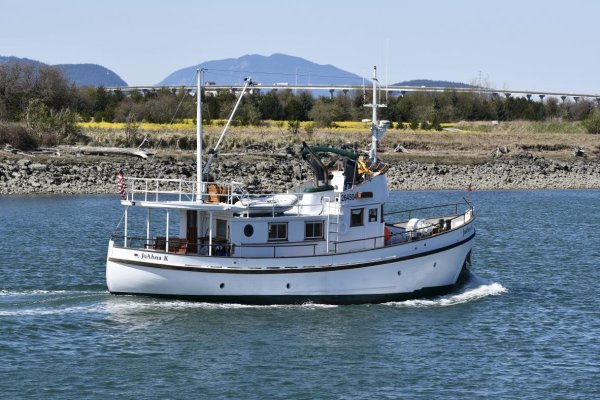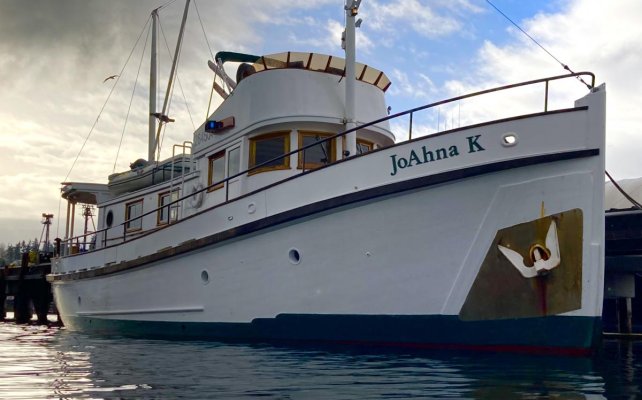Hi! This is going to be my first post of many here in the forums! Excited to be here!
I'll bore you with a smattering of my intentions and background so that this question makes more sense. I'm yet another sailor moving into the Trawler world for the first time. Most of my sailing experience is in the Pacific North West, British Columbia, and the Sea of Cortez. I'm also a full-time nomad, roaming the western U.S. for the last 3 years. I basically spend 300 days a year in the outdoors skiing, climbing, fishing, and riding as deep into the wilderness as possible.
I’m intending to purchase within a year, but I keep going back and forth on a few things. I’ll be using the boat to access the deeper Fjords of BC and SE Alaska in the winter to access backcountry ski lines, fishing, nature photography, and of course fishing! I have experience doing this on a fibreglass sailboat already, so I’m well versed in the redundancy and self-sufficiency requirements of this type of travel.
The main reason I’m moving up into a trawler is that….well….I”m sick of camping on boats. I’ve spent the vast majority of the last decade in sufferfest mode and I’m loving having a warm refuge to take a shower, cook a good meal, hide out from the weather. This leads to me where I could use some advice…
I’ve been pretty dead set on a full displacement metal boat. I’m comfortable welding and really don’t mind the maintenance of steel, but would prefer Aluminum. Having said that, what about wood? My main issue is that in the winter I end up sailing at night quite often. Deadheads are something that I’ve experienced on a few occasions so a VERY robust hull is mandatory. I’m aiming for a functional and very well maintained work boat.
Here are my specific questions:
-If you take the varnish work out of the picture, are wooden boats really that maintenance heavy?
-I’ve read that wooden boats can be warmer in the winter due to the insulation factor. But condensation is my main worry. Do they seem more wet than a metal boat?
-Assuming a robust commercial conversion is the base hull, I’d imagine that a wood ex-seiner could withstand deadhead strikes and the minimal amount of ice we encounter in the NW.
-Any advice on finance houses or insurance outfits that specialize in wooden boats would be welcome.
I'll bore you with a smattering of my intentions and background so that this question makes more sense. I'm yet another sailor moving into the Trawler world for the first time. Most of my sailing experience is in the Pacific North West, British Columbia, and the Sea of Cortez. I'm also a full-time nomad, roaming the western U.S. for the last 3 years. I basically spend 300 days a year in the outdoors skiing, climbing, fishing, and riding as deep into the wilderness as possible.
I’m intending to purchase within a year, but I keep going back and forth on a few things. I’ll be using the boat to access the deeper Fjords of BC and SE Alaska in the winter to access backcountry ski lines, fishing, nature photography, and of course fishing! I have experience doing this on a fibreglass sailboat already, so I’m well versed in the redundancy and self-sufficiency requirements of this type of travel.
The main reason I’m moving up into a trawler is that….well….I”m sick of camping on boats. I’ve spent the vast majority of the last decade in sufferfest mode and I’m loving having a warm refuge to take a shower, cook a good meal, hide out from the weather. This leads to me where I could use some advice…
I’ve been pretty dead set on a full displacement metal boat. I’m comfortable welding and really don’t mind the maintenance of steel, but would prefer Aluminum. Having said that, what about wood? My main issue is that in the winter I end up sailing at night quite often. Deadheads are something that I’ve experienced on a few occasions so a VERY robust hull is mandatory. I’m aiming for a functional and very well maintained work boat.
Here are my specific questions:
-If you take the varnish work out of the picture, are wooden boats really that maintenance heavy?
-I’ve read that wooden boats can be warmer in the winter due to the insulation factor. But condensation is my main worry. Do they seem more wet than a metal boat?
-Assuming a robust commercial conversion is the base hull, I’d imagine that a wood ex-seiner could withstand deadhead strikes and the minimal amount of ice we encounter in the NW.
-Any advice on finance houses or insurance outfits that specialize in wooden boats would be welcome.





